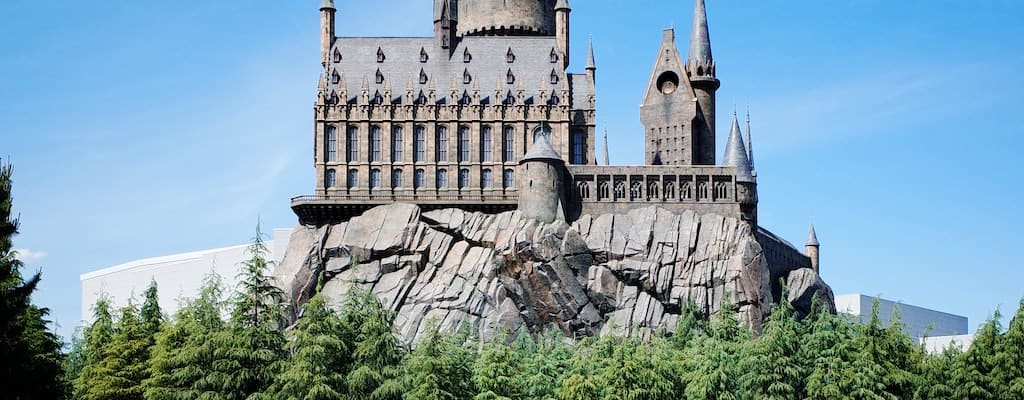castle in the air: Idiom Meaning and Origin
What does ‘castle in the air’ mean?
The idiom "castle in the air" refers to an unrealistic or impractical fantasy or dream that is unlikely to happen or materialize.

Idiom Explorer
When someone is referred to as the "king of the castle," it means they are in a position of power or authority and have control over a particular situation or group of people. This idiom can also imply a sense of dominance and superiority.
The idiom "I wish" is used to express a desire for something that is unlikely or impossible to happen in reality. It enables people to communicate their hopes or dreams, often highlighting a contrast between what is desired and what is actually true.
The idiom "in your dreams" means that something is unlikely or impossible to happen in reality. It is often used as a dismissive response to indicate that someone's desire or suggestion is unrealistic.
The idiom "into thin air" means to disappear or vanish suddenly and completely, without leaving any traces or evidence behind.
The idiom "in one's wildest dreams" means beyond one's imagination or expectations, referring to something that is highly unlikely or unrealistic.
The idiom "in one's dreams" means that something is unlikely or impossible to happen. It is often used to dismiss someone's unrealistic or fanciful ideas.
"In Dickie's meadow" is an idiom that means in a fictional or imaginary place, often used to imply a situation that is not realistic or practical.
The idiom "if only" is used to express a strong wish or regret about something that is impossible or unlikely to happen. It conveys a sense of nostalgia or longing for a different outcome.
The idiom "house of cards" refers to a situation or structure that is extremely fragile and easily destroyed or collapsed due to a small disturbance or mistake. It signifies a lack of strength, stability, or reliability, often used to describe precarious relationships, plans, or systems.
Dreamer's Vision
Castle in the air is an idiom that has been used for centuries. Its origin can be traced back to the early 1600s. The idiom is commonly used in English-speaking countries, including the United States. It refers to an unrealistic or fanciful idea or project.
The idiom is thought to have come from the idea of constructing a castle in the sky, which is an impractical and impossible task. A castle floating in the air represents something that is not grounded in reality and lacks substance. It implies that the idea or project being described is purely imaginary and unlikely to ever be realized.
While the exact origins of the idiom are unclear, it is believed to have been influenced by similar expressions used in other languages. For example, in French, there is a similar expression "château en Espagne," which translates to "castle in Spain." This expression also conveys the concept of an illusory or unattainable idea.
The idiom "castle in the air" is often used in a derogatory manner to dismiss someone's unrealistic or impractical plans or dreams. It suggests that the person is indulging in idle fantasies rather than focusing on more practical or achievable goals. It can also be used to caution against investing time or effort into something that is unlikely to yield tangible results.
In popular culture, the idiom has been referenced in literature, music, and film. It has appeared in various contexts, often to emphasize the ephemeral nature of dreams and aspirations. The idiom has a poetic quality to it, evoking images of grandeur and imagination, yet ultimately highlighting their transitory nature.
The idiom "build castles in the air" is closely related to "castle in the air." It is an expression that means to form or create unrealistic hopes or plans that are unlikely to ever become reality. It emphasizes the idea that the concepts or ideas being imagined are purely fanciful and detached from practicality. When someone says, "stop building castles in the air," they are essentially telling the person to stop indulging in unrealistic dreams or plans.
The idiom "flight of fancy" is also closely related to "castle in the air." It refers to a spontaneous or whimsical idea or notion that is entertaining to imagine but lacks any practicality or substance. This idiom highlights the notion that the ideas being entertained are purely imaginative and not rooted in reality. When someone dismisses another person's idea as a "flight of fancy," they are implying that the idea is fanciful and not worth serious consideration.
The idiom "in one's dreams" is another phrase related to "castle in the air." It is used to dismiss or reject someone's statement or suggestion as being unrealistic or unlikely to happen. It implies that the idea or proposal being discussed is purely imaginary and far from being a realistic possibility. When someone responds to a suggestion with "in your dreams," they are essentially saying that the suggestion is completely unrealistic and will never happen.
The idiom "in your dreams" is also closely related to "castle in the air." It is a dismissive phrase used to express disbelief or skepticism towards someone's statement or proposition. It suggests that the idea or claim being made is so unrealistic or unlikely that it exists only in the person's imagination. When someone responds to a statement with "in your dreams," they are essentially expressing doubt or disbelief in the feasibility of the statement.
The idiom "castle in the air" and its related idioms all serve to highlight the impracticality and lack of reality in certain ideas, plans, or dreams. They convey the idea that these concepts exist only in the realm of fantasy and imagination, with little chance of ever being realized. While these idioms may be used in a derogatory or dismissive manner, they also prompt us to consider the nature of our own dreams and aspirations. They remind us of the importance of grounding our ambitions in reality to achieve true success.
Example usage
The architect's grand vision of a floating city was nothing more than a castle in the air.
Although his dreams of becoming a famous actor seemed like a castle in the air, he worked tirelessly to make them a reality.
She spent years building castles in the air, imagining a life full of luxury and adventure, but never took any action to achieve her dreams.
The idiom "castle in the air" is used to describe a fanciful or unrealistic idea or plan that is unlikely to come true. It implies that the idea or plan is like a castle that has been constructed in the air, with no solid foundation or likelihood of being realized.
More "Imagination" idioms



